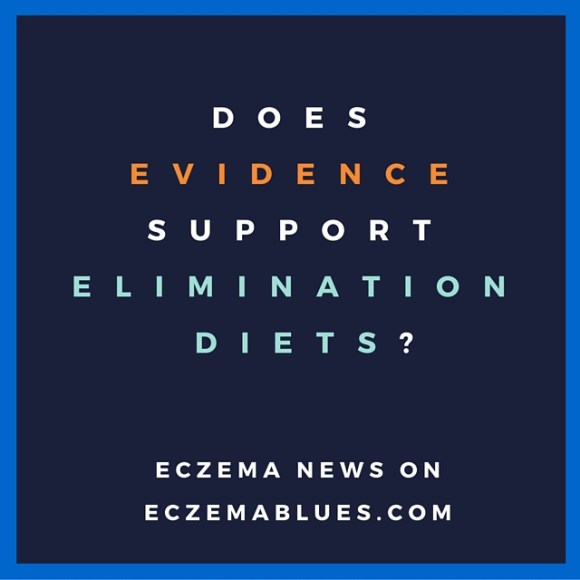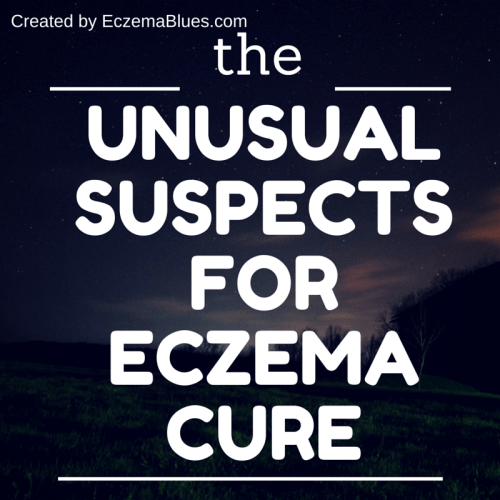Should you restrict your pregnancy diet? Take some supplements to reduce the chance of your baby having eczema? Should you breastfeed longer? Should you feed your baby partially hydrolyzed formula?
Read this compilation of the recent studies, and better still, share in the related forum posts.
- Breastfeeding and Hydrolyzed Milk forum discussion
- Probiotic and Eczema Risk forum discussion
- Solid Introduction and impact on Eczema forum discussion
Pregnancy Diet and Allergy Risk
So, You are Pregnant and You know that Your Family has an Eczema/ Allergy History. Is there anything that you can do?
This February 2018 UK study investigated how maternal or infant diet can influence risk of allergic disease. The conclusion was maternal probiotic and fish oil supplementation may reduce risk of eczema and allergic sensitisation to food, respectively.
However, in the US, the American Academy of Pediatrics (AAP) in their 2019 paper did not support maternal dietary restrictions during pregnancy and lactation to prevent atopic disease.
Recommendations on impact of maternal diet for atopic dermatitis do vary by country
For instance, World Allergy Organization guideline recommended probiotic (for high-risk cases) and prebiotic (for not exclusively-breastfed infants) supplements for eczema prevention, but European (EAACI), North American and Australasian guidelines do not support this.
So, check with your doctor on probiotic and omega-3 for reducing the chance your baby will have eczema
How Long Should You Breastfeed?
Now your baby is born, how long should you breastfeed?
A retrospective cohort study (46,616 children) in Japan in September 2019 found that breastfeeding, especially colostrum, had prophylactic effects (preventive) on food allergy.
But this finding was only true for high-risk children with infantile eczema. On the other hand, prolonged breastfeeding increased the risk of food allergy.
Scary isn’t it? We seldom hear anything negative about breastfeeding, but this study highlighted risk of prolonged breastfeeding
How can prolonged breastfeeding be negative? It may be related to introducing solids later (if you are breastfeeding longer) or any other factors that are difficult to measure in a study.
There is this PROBIT trial that aims to look at the benefits of breastfeeding. It supports exclusive breastfeeding for at least 3 months as there is reduced eczema for up to teenage years.
This is consistent with what was presented in February 2019 Annual Meeting of the American Academy of Allergy, Asthma & Immunology (AAAAI) where it was concluded –
Exclusive breastfeeding may not prevent eczema or eczema diagnosis, but may play a protective role in decreasing the chronicity of eczema in childhood.
Similarly, the AAP in US recommended exclusive breastfeeding for the first 3 to 4 months as it is linked with reduced incidence of eczema in the first 2 years of life.
Should You Persist in Breastfeeding?
The AAP recommendation is that breastfeeding beyond 3 to 4 months does not help prevent atopic disease for your baby. So, if like me, you are finding breastfeeding a struggle, you can stop without feeling guilty. (Phew!)

What about the Type of Milk?
Don’t even get me started on HA hypoallergenic milk. Read this forum post on how bad an experience it was for our family. But seriously, does research support using partially hydrolyzed milk?
The AAP cites a lack of evidence that partially or extensively hydrolyzed formula can prevent atopic disease in infants and children, even in those at high risk for allergic disease.
What’s even scarier is that this French study in 2019 found that partially hydrolyzed formula was associated with higher risk of food allergy and wheezing.
Because allergy testing is not accurate for infants newborn, there is the chance that pediatricians may recommend switching to HA milk if newborn is diagnosed with eczema rash. Please check if your pediatrician or see an allergist to confirm if that is still the right recommendation.
On the other hand, in Singapore, a study in 2018 showed evidence that feeding partially hydrolyzed milk to high-risk infants did reduce the incidence of eczema. This is helpful if :
- Your baby is high-risk, meaning his parent or his sibling has eczema, and
- You are unable to feed 100% breast milk and have to use formula milk, then
- Choosing a partially hydrolyzed milk formula is preferred over cow’s milk and calculated in the study to be cheaper (notwithstanding the partially hydrolyzed milk is more expensive than cow’s milk).
Now Back to Breast Milk…
Interestingly, there are quite a few news on how breast milk is applied on skin to treat eczema rash!
This 2015 Iran study undertook a randomized control trial to determine if APPLYING breast milk onto eczema rash is helpful. The finding? Human breast milk improve infant atopic eczema with the same results as 1% hydrocortisone ointment.
Human Breast Milk as good as mild topical corticosteroid?!
Maybe it is not that hard to believe, considering breast milk has
- Natural antimicrobial agents
- IgA that protect from skin infections
- Lysozymes that kills bacteria
- Anti-inflammatory polymorphonuclear leukocytes
- Bifidus factors that stimulate good bacteria
Here’s many interesting reads on various news channel whereby mothers have used their breast milk to cure their baby’s eczema
Lizzie bathed her baby in her breast milk
Joy used an organic soap made from breast milk
Medela also has an article on the benefits of breast milk.
Infant Diet and Eczema Risk
Is there anything that can be fed to your baby to reduce eczema risk? So far, it seemed that fish and probiotics can be helpful.
This August 2019 Norway study concluded that eating fish at least once a week at 1 year-old was less likely to have eczema, asthma, and wheeze at 6 years-old.
Consuming cod liver oil at least 4 times per week at 1 year old also helps reduce allergy risk.
The other study looked into probiotics – a December 2018 New Zealand study concluded that taking Lactobacillus rhamnosus HN001 in early childhood was associated with significant reductions in the 12-month prevalence of eczema at age 11 years and hay fever.
Here is the “fine print” – the benefit of probiotics was only seen if included directly consuming by infants. The same group of researchers also concluded that taking HN001 during pregnancy and breastfeeding alone will be enough to prevent eczema without giving it directly to the infants. Is that true for you? Share in this forum post.
Solid Introduction
This exciting feeding milestone for many parents usually ends up a stressful one for parents with eczema children. Is it the food that trigger the rashes?
Wait. It is even more confounding because it is possible that the defective skin barrier can somehow increase sensitization to food.

The latest AAP recommendation in 2019 is there is no need to delay the introduction of allergenic foods beyond 4 to 6 months for the prevention of atopic disease. However, early introduction of peanuts (4 – 6 months old) may prevent peanut allergies in high-risk infants. (check out this forum post for updated study.
Now in Singapore, a lot of parents feed solids after 6 months and generally wait till one year old before attempting allergenic foods, especially peanuts. Our Singapore researchers looked into it and concluded that the infant feeding recommendation to introduce peanuts early may not be applicable for Asian population.
Where do you live? And has any of the research held true for your baby? Share in the comments or the forum posts














































